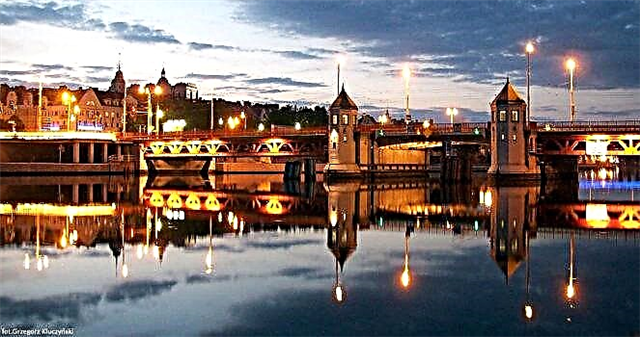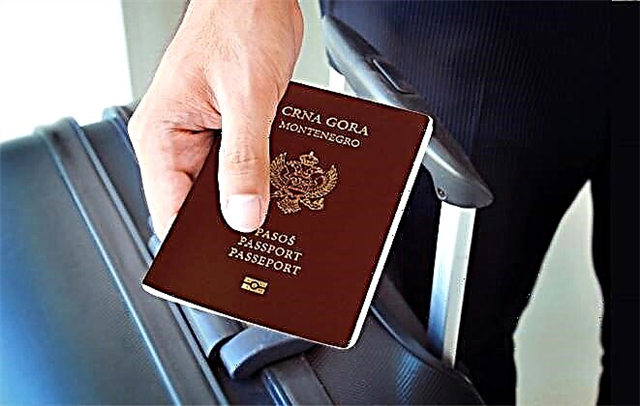Studying in Austria means taking the first step towards legalization in Europe. This state attracts with the quality of teaching, good reputation of educational institutions, low prices in comparison with other European countries, and safety of life. Many Austrian schools and universities have long adapted to foreign students, which makes their stay here comfortable and productive. What do you need to know about studying in this part of Europe, what documents should be prepared, what kind of budget will be needed?
How the Austrian education system works
The legal basis on which primary and secondary education in Austria is built was determined in 1962. Laws are passed at the constitutional level, and therefore they can be changed only by a two-thirds majority of the parliament. Since 2000, higher educational institutions of the country have also fallen under the control of the state.
The educational process in Austria resembles the Russian model and includes three stages:
- Primary - 4 years of elementary school.
- The main one is a secondary school, which assumes 5 or 8 grades (gymnasiums and schools with a special bias belong to this stage).
- Higher - represented by universities, colleges and higher schools.
Primary school education
Before the baby goes to school, parents have the opportunity to place him in a nursery and then in a kindergarten. Nursery (Kinderkrippen) children attend up to three years.
This stage is not about learning. The main task of teachers is caring for pupils, organizing their leisure time, developing creative and communication skills. Usually working parents who do not have the opportunity to sit with the child on their own use the services of such institutions.
From the age of three, the baby can be sent to a kindergarten - Kindergarten. Educators of this type of preschool institutions also do not torture children with studies. They are taught to write, count and read in special courses, which they must attend from the age of 5. Such training centers usually operate on the basis of kindergartens.
Preschool institutions are divided into state (about 60%) and private (about 40%). Visiting both those and others is paid - about 150-300 euros per month.
Kindergartens in Austria for Russians and other foreigners are also available only on a paid basis. This stage is not mandatory, but just equates to the stay of the child with a nanny, so you can find other options for where to arrange the baby while the parents are at work. However, since German language groups are organized for foreign children in many kindergartens, most migrants still prefer to place their children in a kindergarten.
Primary education in Austria lasts 4 years - from 6 to 11 years. This school level is compulsory. Children can attend public and private educational institutions. All of them are divided into several types:
- folk school - Volksschule;
- initial - Grundschule;
- special - Sonderschule.
The former are not very common, but the latter are very popular.
Special schools are for children with special needs. Inclusive education in the country is still in its infancy. Therefore, most of the children with special needs can be educated in special schools.
After sufficient funding is available, some schools organize after-school groups. At the initial stage, children will find a basic program with the study of basic subjects: German, mathematics, natural history, physical education, a foreign language.
The beginning of the school year falls on September 1, but in some regions children go to school from September 1 to 8, this decision is made by the local authorities. The year is divided into several semesters (their number is also determined by the regional administration). Education ends by the end of June.
Middle school stage
At the end of primary school, parents and children have a choice. The secondary school system involves the following types of educational institutions:
- Hauptschule is a basic school.
- Gymnasium is a gymnasium.
- Realgymnasium is a gymnasium with in-depth study of individual subjects.
- Wirtschaftskundlisches Realgymnasium is a mixed gymnasium with an emphasis on teaching home economics.
Able pupils enter the gymnasium. German, foreign language and mathematics are studied here at an in-depth level. In general, gymnasium education is considered more prestigious in the country. Graduates of high school students after graduation can apply for admission to universities.
In secondary school, children are taught from 10 to 14 years old. The program at this stage covers all major subjects. At the end of the course, children take exams and move on to the next level.
How many years they study in school in Austria depends on the type of educational institution that the student chooses at the secondary school stage. This can take 9 to 12 years.
From 14 to 18 years old, schoolchildren study in a higher secondary school, which is a preparation for entering the university. Upon completion, children receive a certificate of complete secondary education.
Boarding schools
One of the most popular types of educational institutions in the country is the boarding school. It is assumed that children in them not only undergo training, but also receive accommodation and meals on a permanent basis.
The share of boarding schools in the total number of educational institutions in Austria is approximately 10%. The cost of staying in such a school costs 500-600 euros per month. Expensive, but along with knowledge, children receive rich leisure time and skills for independent living.
Popular boarding schools include:
- St. Gilgen International School - located near the capital, willingly accepts foreign children.
- Theresianum-Volksschule School - Offers primary school education.
- American International School is a prestigious school for children 12-19 years old. Training is conducted according to the American program and in English.
Features of higher education
Higher education in Austria is represented by colleges, high schools, standard universities and art universities.
The academic year for students is divided into 2 semesters. One starts in October, the second in March. The rating system is five-point: 1 - the highest score, 5 - the lowest.
Today, there are 23 state and 11 private higher educational institutions in the country. Most of the universities are located in the Austrian capital - 13 universities. All of them teach based on the Bologna system, which includes three stages:
- bachelor's degree,
- magistracy,
- doctoral studies.
The highest places in various European rankings are always occupied by socio-economic and technical specialties, as well as medical faculties. Training is conducted in German, but English-language programs can also be found.
The largest universities in the country are the University of Vienna, Innsbruck, Graz and Salzburg.
Choosing a university
Some universities in Austria are among the best not only in the country, but also in Europe. Of all higher education institutions, applicants give preference to universities.
Higher schools here are analogous to Russian technical schools. The period of study in them takes 4 years, and you can enter at the age of 14. Colleges are also not very popular with foreigners.
When going to study in Austria, you should remember two points:
- The educational process here is focused on research work, and therefore it is expected that the applicant has correctly identified his future profession.
- Students of Austrian universities have a lot of freedom of choice - they choose about 20-50% of subjects on their own.The compilation of the list of subjects for study must be approached as responsibly as possible, since this can play a decisive role in employment.
In order not to get lost in programs and universities, we offer a short overview of the leading universities in the country (according to the national ranking):
- University of Vienna (University of Vienna) - founded in the XIV century, is one of the largest research centers in the European territory. About 7000 scientists work here on 16 research projects. Leading faculties: medicine, mathematics, information technology, molecular biology, chemistry, physics, economics, theology, linguistics, life sciences, geography.
- Innsbruck University Leopold and Franz (University of Innsbruck) - founded in the 17th century. The university specializes in training professionals in the following areas of knowledge: humanities, information technology, pharmaceuticals, chemistry, physics, astronomy, theology.
- Vienna University of Technology - founded in the 19th century. The university graduates specialists in the field of engineering and natural sciences, as well as humanities and economics. The strongest are the Faculties of Mathematics, Physics, Civil Engineering and Information Technology.
- The University of Graz (The University of Graz) - founded in the 16th century, specializes in the humanities and natural sciences, robotics. Large-scale research projects are being carried out here in cooperation with the Technical University of Graz.
- University of Linz (Johannes Kepler University Linz) - founded in 1966. Technology and engineering are the leading areas. The number of students reaches 17,000.
- Medical University of Vienna - founded in 2004. Despite its young age, the university is annually included in the top 10 best universities in Austria.
- The University of Salzburg is one of the oldest and most prestigious universities in the country, founded in the 17th century. Leading faculties: theology, law, culture and social sciences, natural sciences.
How to enter an Austrian university
The rules for admission to Austrian universities in 2021 are the same for Russians, Ukrainians, Belarusians and other foreigners. You don't have to come to the country in person to become a student.
You can submit documents online on the website of the university you like. There are no exams to take. But to be enrolled, you will have to go through an interview, which is usually carried out via Skype.
You can apply for admission twice a year - before the first semester (until September 5) and before the second (until February 5). Mandatory requirement is knowledge of German at C1 level. If you intend to study in English, you must pass the IELTS exam.
After confirmation by the university of enrollment in the ranks of students, it is necessary to issue a student visa and appear at the place of study. You need to have a letter of notification, a passport and 3 photos with you. It is important to comply with the terms of attendance at the university, otherwise they may not be admitted to classes.
Package of documents for admission
To apply, you will need the following documents for admission to Austria:
- A copy and original of the diploma of complete secondary or secondary vocational education.
- Parental consent if the applicant is under 18 years of age.
- Certificate of existing professional education, if the applicant intends to get a second or enters a master's or doctoral studies.
- Certificate of passing a language exam or passing a language course at a university in Austria.
- University questionnaire.
- Autobiography.
- Recommendations from teachers.
- Motivation letter indicating why this educational institution was chosen.
Some medical and creative specialties will have to pass entrance exams. Their list is determined by the exams in which subjects the applicant took at home.
In the absence of an academic difference, the admissions committee can exempt from passing exams.
Confirmation of a Russian diploma is not required. But all documents drawn up in foreign languages must be translated into German and certified by a notary.
Visa application
Regardless of whether a foreigner has to study in Vienna or another Austrian city, a prospective student needs to obtain a student visa. To present to the consulate, you will need the following package of documents:
- Foreign passport with a copy of all spreads.
- Birth certificate.
- Photos taken no earlier than 6 months before the filing of the application.
- Letter of admission to the university.
- Sponsorship letter or income statement.
- Confirmation of availability of a place to stay.
- Certificate stating that the applicant has no previous convictions.
- Insurance.
- Parental consent for the child to travel abroad (for minors).
It takes about 4 weeks to process the request. It is best to apply to the consulate 2 months before the start of the class.
How long does the training last and what budget is needed
The cost of studying in Austria for foreign students depends on the stage of the educational process, the type of educational institution and even the city.
Some categories of applicants can count on free education at state universities. This opportunity can be used by:
- citizens of the European Union;
- participants in international student exchange programs;
- those who received the grant;
- excellent students;
- refugees.
You can find out how much it costs to study in Austria for Russians on the website of the selected university. Today this amount reaches 800 euros for 1 semester.
This information is updated annually, and therefore it is necessary to search for relevant data immediately before submitting documents. In addition, you will have to prove that there is an amount on the applicant's bank account based on the calculation of 650-800 euros per month.
You will have to take care of the issue of housing on your own, since most universities do not have the opportunity to settle students.
There may be several options for accommodation:
- The hostel will cost 250-400 euros, depending on the level of comfort and the number of people living in the room.
- Sharing an apartment costs about the same as a place in a hostel, but promises more comfortable conditions.
- Apartment - its price will depend on the area and city. Small studio of about 20 sq. m in a small town will cost up to 400 euros, in Vienna the cost of such housing starts at 500 euros.
A language school will cost about 700 euros per week, and preparatory courses before entering the university will cost about 3500 euros per semester.
The duration of training depends on the stage of the educational process:
- bachelor's degree lasts 3 years (for technical specialties - 4 years);
- Master's degree - 1-2 years;
- doctoral studies - 3-5 years.
The last year of the master's program is usually devoted to an internship, and doctoral studies are divided into 2 stages: reading lectures and seminars + writing a doctoral dissertation.
Is it possible to count on a scholarship or grant
The authorities of the Austrian state allocate a budget every year to provide financial assistance to students in the form of grants and scholarships. But only citizens of the European Union can receive support for excellent studies.
Many programs for sponsoring talented students and future scientists are also allocated by international, cultural and scientific foundations. Grants are provided on a competitive basis. Selection criteria are above average academic performance and research potential.
Popular programs include:
- Scholarship from the American university Webster Vienna - 50% discount on studies for excellent students who speak English at a level not lower than B2.
- Scholarship under the Erasmus Mundus program - funded by the European Union, designed for students of the Faculties of Natural Sciences and Humanities.
- Ernst exchange program - students who are not EU citizens can take part in it.
Before entering, it will be useful to check on the website of the selected educational institution which universities it cooperates with.
How students live in Austria
Studying in Austria means living in a country with a stable economy, beautiful nature, clean ecology and low crime rates. But it should be remembered that a high standard of living leads to high prices for the main items of expenditure.
On average, a student will have to allocate at least 400 euros per month for meals. Another 40 euros will be needed for a monthly pass.
An advantage can be considered the opportunity to get a part-time job while studying. The legislation allows 20 working hours per week for students. Most often, young people choose the vacancies of waiters, bartenders, dishwashers, couriers.
Various benefits for students also make it possible to save money, for example, to pay for travel in public transport, for subscriptions to gyms.
Outcomes
Reviews on forums on the Internet and on the websites of educational institutions, as well as a comparative table of the pros and cons of studying in Austria will help to make the final decision:
| Advantages | disadvantages |
|---|---|
| - The opportunity to get education in one of the modern or rare areas that are not available in other countries. For example, you can only learn to be a jazz performer in the entire European space in Austria. Such areas of knowledge as quantum optics or mathematical modeling are also available here. - Obtaining a European-style diploma, which is recognized by most countries in the world. - Opportunity to undergo an internship and stay in a local company as an employee after graduation. - Comparatively low cost of training. - High freedom of action of students in the choice of subjects for study. - Opportunity to earn extra money while studying. - The right to travel within the EU on the basis of a student visa. - Ability to apply for an Austrian residence permit | - Strict requirements for the level of language proficiency. - Difficulties with employment in the country, if you did not manage to "catch on" in the process of study. - The high cost of housing and food. - Insufficient housing in universities, only a few can provide students with rooms in dormitories |
After graduating from university, a graduate can stay in Austria for another six months to try to find a job. Specialists with a diploma in the technical field and in the field of religious studies are especially appreciated in Europe. While still a graduate student, a student can get a position at the university, but for this you need to show a high level of language proficiency.











